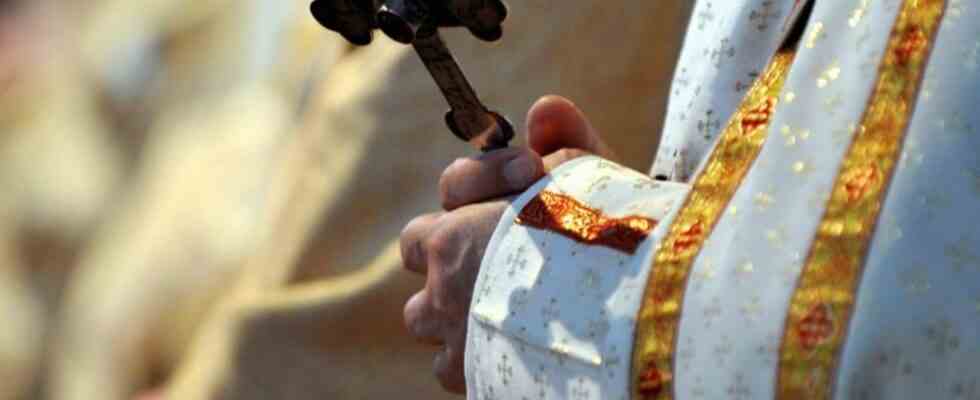religion
Corona, war and church crisis: Catholic Day in Stuttgart
A Catholic Mass in Munich. Photo: Peter Kneffel/dpa
© dpa-infocom GmbH
For the first time in four years, a Catholic Day will take place in person – albeit much smaller than usual. According to experts, this has nothing to do with Corona.
The 102nd Catholic Day from Wednesday to Sunday in Stuttgart is supposed to be particularly political.
“We will send a signal that the supposed power of the strongest does not have the last word,” says Irme Stetter-Karp, President of the Central Committee of German Catholics (ZdK), the German Press Agency. “This sign is for Vladimir Putin, it’s for the anti-democratic, right-wing nationalist forces in our own country, but it’s also for those who want to barricade the future with threats and allegations of division in our church.”
Also an activist among the guests
The ZdK – which sees itself as representing “Catholic civil society” – is the organizer of the church festival with almost 1,500 events, including church services, podiums and workshops. Guests include Federal President Frank-Walter Steinmeier and Federal Chancellor Olaf Scholz, but also climate activist Luisa Neubauer and moderator Eckart von Hirschhausen.
Although the Catholic Day will take place entirely in attendance, far fewer participants are expected than before the Corona pandemic. While almost 90,000 believers came to the last edition in Münster four years ago, the organizers are only expecting 20,000 to 30,000 this time. “In view of the very high incidence values of the corona pandemic, we had the anxious question for a long time as to whether we would be able to hold the Catholic Day in person at all,” says Stetter-Karp. «The next impact came on February 24th: What is the consequence of the war in Ukraine? In this respect: We have several states of emergency. And one of these is undoubtedly the crisis in our church.”
20,000 to 30,000 participants are still “a blessing” and by no means a disappointment. “Where else do so many people from politics, science, church and world, people from the communities, guests from abroad, committed people from all parts of Germany, members of different religions meet and discuss about God and the world?”
“Creating publicity and enabling encounters”
The costs of the Catholic Day remain the same at ten million euros, with the city of Stuttgart, the state of Baden-Württemberg and the federal government paying heavily. “We are dealing with a sharp increase in costs because the events industry has changed a lot as a result of the pandemic,” says Stetter-Karp. “At the same time, it is important to us that we generate publicity again and enable encounters. That has its price.”
The church expert and author Andreas Püttmann (“How Catholic is Germany… and what does it get out of it?”) attributes the low number of registrations not only to the ongoing corona pandemic, but also to an ever weakening bond with the church. According to a Forsa survey in January 2022, only 12 percent of Germans had great trust in the Catholic Church, and 33 percent in the Protestant Church, says Püttmann. That is three percentage points less than in 2021.
“Human-hostile perceptions of sexual morality”
The Catholic Church is only slightly removed from the eight percent trust in the Central Council of Muslims. Five years ago, their value was more than twice as high, at 28 percent. “Trust in the pope has also collapsed,” says Püttmann.
The expert sees “years of scandal reporting and sexual morality perceived as misanthropic” as the causes for this. “Religious indifference dominates,” concludes Püttmann.
Stetter-Karp admits that German Catholics are currently walking a “fine line between abyss and new beginnings”. However, she is convinced: “Without the courage to show ourselves in public space as a community of believers, we will certainly not develop any contagious power.”

